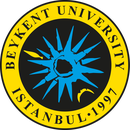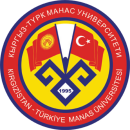
International Conference on Eurasian Economies
1-3 July 2014 – Skopje, MACEDONIA
Paper detail
Paper ID : 1120
Status : Paper published
Language : Turkish
Topic : Regional Economics
Presenter: Mr. Atila Karkacıer
Session : 7D Makroekonomi II
Identifying the Factors Affecting Business Cycles Synchronization between Turkey and Macedonia Economies
Türkiye ve Makedonya Ekonomilerinin Konjonktürel Uyumunu Belirleyen Faktörler
- Mr. Türker Şimşek (Gaziosmanpaşa University, Türkiye)
- Mr. Emre Aslan (Gaziosmanpaşa University, Türkiye)
- Mr. Atila Karkacıer (Gaziosmanpaşa University, Türkiye)
- Asst. Prof. Dr. Ahmet Güven (Gaziosmanpaşa University, Türkiye)
Abstract
This study aim to identify the affecting factors about business cycles synchronization between Turkey and its trade partner, Macedonia. For a better understanding of the subject, we give the theoretical and empirical literatures. Countries are faced with crises and recessions because of often fluctuations in the economy. Dynamic structure of economic fluctuations should be analyzed for the combat the crises and recessions. It must be analyzed the relationship between business cycles fluctuations and economic variables with sophisticated econometric methods. Analyzing the business cycles synchronization is important for the sake of stability and determining the prudential policies. We used Panel Generalized Methods of Moments to analyze the business cycles synchronization between Turkey and its trade partner, Macedonia via STATA. Identifying the determinants of business cycles synchronizations between Turkey and Macedonian economies provide the effective economic policies in these countries. Effective economic policy increase the trade volume between Turkey and Macedonia. If we identify the business cycles synchronization correctly, policy makers take an advantage for interventions on economy. After the analyzed, we conclude that there is a business cycles synchronization between Turkey and Macedonia.
JEL codes: B22, F44, F47
Şimşek, Türker, Aslan, Emre, Karkacıer, Atila, Güven, Ahmet (2014). "Identifying the Factors Affecting Business Cycles Synchronization between Turkey and Macedonia Economies" in Proceedings of International Conference of Eurasian Economies 2014, pp.957-963, Skopje, MACEDONIA.
DOI: https://doi.org/10.36880/C05.01120




